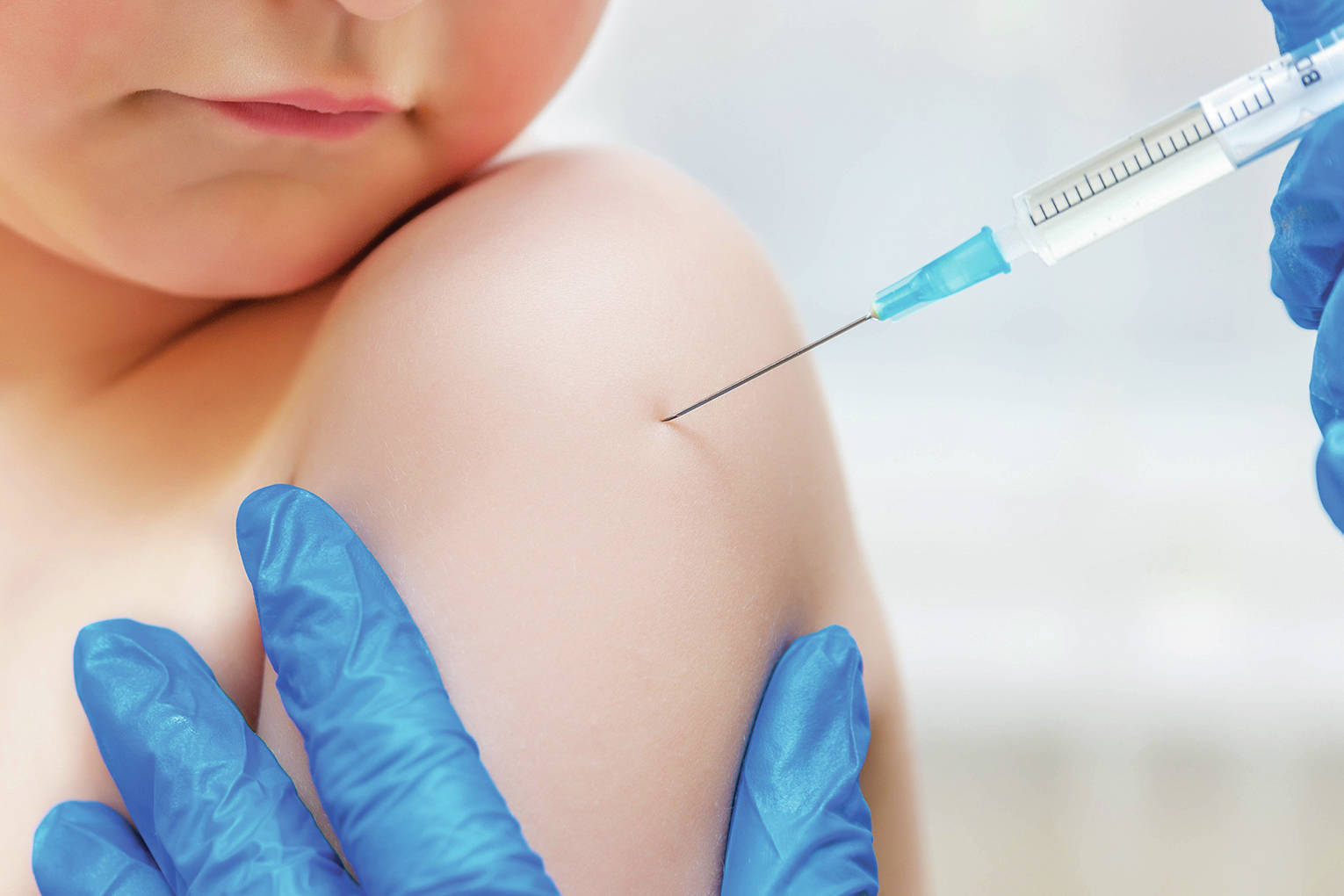On July 16, Alaska became part of the national measles epidemic when measles was diagnosed in an unvaccinated Kenai Peninsula teenager who acquired the illness while travelling in the Lower 48. Most of us today haven’t experienced measles firsthand and some wonder, “What’s the big deal?” Some people may have forgotten how serious measles can be.
One of the most contagious diseases in the world, measles can lead to severe complications including brain swelling and death. In 2017, over 100,000 people died from measles globally — most of these people were children under 5 years of age. Prior to the widespread availability of the measles, mumps, and rubella (MMR) vaccine, 3 to 4 four million people per year were infected with measles in the United States. Of these, nearly 50,000 were hospitalized, 1,000 had brain swelling that sometimes left children deaf or brain damaged, and 500 died annually.
In 1978, the Centers for Disease Control and Prevention (CDC) set a goal to eliminate measles. Due to a highly effective vaccination program, in 2000, CDC declared measles eliminated in the United States. Unfortunately, that monumental public health success is now faltering due in large part to misinformation about measles and vaccines, leading some parents to choose not to vaccinate their children. From Jan. 1 to July 18, 2019, 1,148 cases of measles have been confirmed in 30 states across the nation. This is the largest number of measles cases reported in the United States since 1992.
Due to poor compliance with CDC’s vaccination recommendations, Alaska’s immunization coverage rates are considerably lower than the level that affords protection for the entire community. “Herd immunity” protects communities from outbreaks only when the community’s coverage rate exceeds a specified proportion of the population; for measles, immunization rates of at least 95% are required to prevent outbreaks from occurring as long as there are no sizeable social groups within the community with low coverage rates that create pockets of vulnerability. Just like the wildfires we are seeing, a measles outbreak will spread through vulnerable communities and spare those that are better protected. It doesn’t matter who lives in the affected communities; what does matter is whether or not people are vaccinated.
Most people feel quite ill if they have measles — fevers can reach as high as 105°F. Complications include diarrhea, ear infections, pneumonia, encephalitis (brain swelling) and a rare degenerative disease that affects the central nervous system called subacute sclerosing panencephalitis (SSPE) that can appear 7 to 10 years after someone has measles. Measles can also temporarily suppress the immune system in a way similar to human immunodeficiency virus (HIV) infection.
Beyond the immediate health risks, infected individuals should be isolated while ill, which means lost time from work or school and disruption to families. Health care workers may not be allowed to report to work if they are awaiting proof of immunity. The costs of a measles outbreak would ripple through Alaska’s communities in painful ways; that’s why our state’s epidemiologists, public health nurses, health care providers and other community partners are working so hard to help stop the spread of measles now. Prevention is critical for staving off an outbreak and the associated health consequences and costs.
The measles virus travels through the air and can linger for up to two hours after an infected person has left the room; 90% of susceptible people who are exposed to someone with measles will become infected. Those infected will typically start experiencing symptoms within 8-12 days of their exposure, but it can take up to three weeks for symptoms to occur in some people. Infected individuals are contagious from four days before the rash appears until four days after — and should be isolated from other susceptible people during this period. The initial symptoms of measles typically include runny nose, red watery eyes, high fever (>101 °F) and cough, followed by a red, blotchy rash that starts on the head and spreads down the body to the torso, arms and legs. If you think you or your child may be sick it is important to CALL your health care provider before going to the clinic so that the clinic staff can tell you where and when to enter the clinic; this helps prevent exposure to people in the clinic waiting room.
While it’s not surprising measles has landed in Alaska, this case represents an important reminder that we all need to pitch in to protect ourselves, our loved ones, and our community from this serious disease. Fortunately, there is a very safe and effective way to do just that — get vaccinated! Once you are vaccinated for measles, immunity is lifelong; no boosters are needed to keep you protected.
For more information: measles.dhss.alaska.gov.
Dr. Lily Lou, M.D. is a physician board certified in pediatrics and neonatology, and is Alaska’s Chief Medical Officer.
Dr. Anne Zink, M.D., is a board certified emergency physician and Alaska’s incoming Chief Medical Officer.
Adam Crum, M.S.P.H., is Commissioner of the Alaska Department of Health and Social Services.

